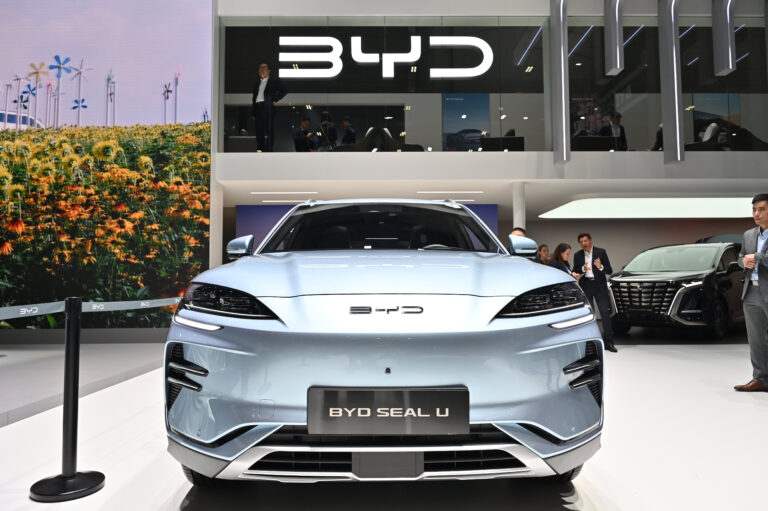The European Union on Thursday confirmed its decision to raise tariffs on electric vehicles imported from China, with one automaker issuing a new warning that it may be forced to raise prices as a result.
The European Commission, the European Union’s executive body, announced plans for such a tax in June after finding that Chinese battery-electric makers were benefiting from “unfair” subsidies.
European regulators confirmed on Thursday that those tariffs, slightly adjusted from 17.4% to 37.6%, will take effect on Friday. The tariffs will affect automakers ranging from Chinese giant BYD to European brands that build cars in China, as well as US giant Tesla, which has a factory in Shanghai.
The EU’s decision comes at a time when Chinese automakers are aggressively expanding into Europe with competitively priced products, threatening regional automakers lagging behind in EVs and which the European Commission says benefit from “unfair subsidies.”
Automakers are already fighting back against the tariffs.
Chinese electric vehicle maker NIO said on Thursday it was currently maintaining prices of its cars sold in Europe, but added that “due to the implementation of these tariffs, we cannot rule out the possibility of price adjustments at a later date.”
A spokesman for Xpeng, another Chinese EV startup, said Thursday that customers waiting for vehicle delivery or placing new orders before the tariffs take effect “will be protected from any price increases.”
The company declined to comment on whether prices would ultimately increase as a result of the tax.
Geely declined to comment when contacted by CNBC.
When the EU first announced the tariffs last month, Tesla said it would likely raise prices in Europe for its Model 3. The EU has yet to reveal the specific level of tariffs Tesla would face, but noted last month that the U.S. automaker “may be subject to an individually calculated tariff rate.”
The tariffs that come into force on Friday are provisional and will be in place for four months, during which EU member states must vote on so-called “definitive tariffs” that will be in place for five years.
Chinese and EU officials have held several meetings to discuss the tariffs, with Beijing criticising the EU’s imposition of the tariffs in June as a “protectionist act”.
China’s Commerce Ministry spokesman He Yadong said on Thursday it hopes that the two sides “can make compromises, show sincerity, speed up the consultation process, and reach a mutually acceptable solution as soon as possible based on rules and reality.”
Chinese electric vehicle makers reiterated their focus on the European market, where they have been expanding for the past few years.
Xpeng said it is “committed to providing high quality, innovative products to its ever-growing European customer base and is committed to its long-term commitment to these markets.”
The company added that it is “actively evaluating the possibility of establishing local manufacturing capabilities in Europe.” Xpeng currently makes all of its cars in China. A European factory could help offset some of the tariffs.
BYD, one of China and the world’s largest EV makers, announced plans last year to open its first European factory in Hungary but did not say when.
NIO, meanwhile, said on Thursday that it “is fully committed to the European market. We believe in promoting competition and consumer interests and hope to reach a resolution with the EU before the final measures are implemented in November 2024.”

